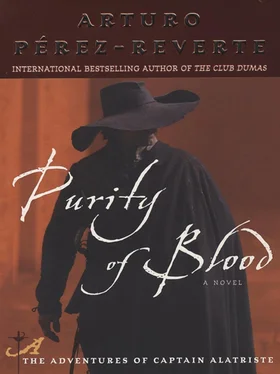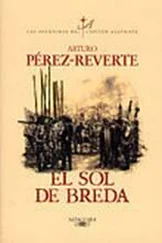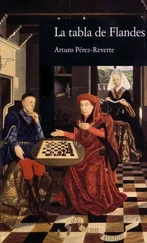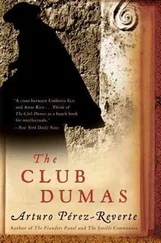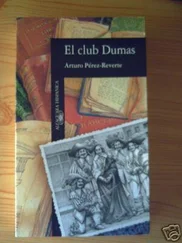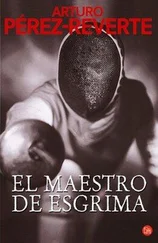Arturo Pérez-Reverte - Purity of Blood
Здесь есть возможность читать онлайн «Arturo Pérez-Reverte - Purity of Blood» весь текст электронной книги совершенно бесплатно (целиком полную версию без сокращений). В некоторых случаях можно слушать аудио, скачать через торрент в формате fb2 и присутствует краткое содержание. Жанр: Старинная литература, на английском языке. Описание произведения, (предисловие) а так же отзывы посетителей доступны на портале библиотеки ЛибКат.
- Название:Purity of Blood
- Автор:
- Жанр:
- Год:неизвестен
- ISBN:нет данных
- Рейтинг книги:3 / 5. Голосов: 1
-
Избранное:Добавить в избранное
- Отзывы:
-
Ваша оценка:
- 60
- 1
- 2
- 3
- 4
- 5
Purity of Blood: краткое содержание, описание и аннотация
Предлагаем к чтению аннотацию, описание, краткое содержание или предисловие (зависит от того, что написал сам автор книги «Purity of Blood»). Если вы не нашли необходимую информацию о книге — напишите в комментариях, мы постараемся отыскать её.
Purity of Blood — читать онлайн бесплатно полную книгу (весь текст) целиком
Ниже представлен текст книги, разбитый по страницам. Система сохранения места последней прочитанной страницы, позволяет с удобством читать онлайн бесплатно книгу «Purity of Blood», без необходимости каждый раз заново искать на чём Вы остановились. Поставьте закладку, и сможете в любой момент перейти на страницу, на которой закончили чтение.
Интервал:
Закладка:
Expectations resulting from this level of preparation were so high that vying for tickets to a seat at a balconied window often deteriorated into a battle royal. Many people of influence paid good ducats to the Lord Chamberlain of His Majesty’s household to obtain the best locations, including ambassadors, grandees, the king’s courtiers, council presidents, and even His Holiness the Papal Nuncio, who never missed a bullfight, a tournament of tilting, or an outdoor roasting, not even for a fumata blanca in Rome.
On a day like this, meant to be memorable, the Holy Office wanted to kill several partridges with a single shot. Resolved to undermine the Conde de Olivares’s policy of rapprochement with the Jewish Portuguese bankers, the most radical inquisitors of the Supreme Council had planned a spectacular auto-da-fé that would strike fear into the heart of any who were not secure in the purity of their blood. The message was clear. However much of Olivares’s money and favor they might have, Portuguese of Hebrew blood would never be safe in Spain. The Inquisition, relentlessly appealing to the religious conscience of our lord and king—as irresolute and easily influenced as a young man as he was when old, pleasant by nature but lacking character—preferred a ruined nation to one whose faith was threatened. And that preference, which in the long run had its effect—predictably, a most disastrous effect—upon Olivares’s economic plans, was the principal reason why the trial was being hastened: to serve as an efficacious example to the public. What ordinarily would take months, even years, of assiduous instruction was completed in a few weeks’ time.
Because of the haste, details of complex protocol were greatly simplified. Sentences were usually read to the penitents the night prior to the dreaded day, following a solemn procession of officials carrying the green cross destined for the plaza and the white one that would be raised above the stake. This time they were left to be made public on the day of the auto-da-fé, when everyone was already present for the festivities. Prisoners destined for the auto had arrived from the dungeons of Toledo the day before. They—we—were about twenty, and were housed in cells the Holy Office maintained on Calle de los Premostenses, darkly referred to as Calle de la Inquisición, very near the Santo Domingo plaza.
I was brought there on a Saturday night, having communicated with no one since I was taken from my cell and placed in a coach with closed curtains and a heavy guard. I never left the coach until I descended by torchlight in Madrid among the armed civilian familiares of the Inquisition. They led me down to a cell, where I was given a tolerable dinner, a blanket, and a straw mattress. I anticipated a restless night as I listened to footsteps and the noise of locks and bolts outside my door, voices coming and going, a lot of scurrying about, and objects being rolled and dragged. With which I began to fear that I could look forward to a very difficult day on the morrow.
I racked my brain, searching through dangerous moments I had witnessed in the playhouses of the comedias, hoping that, as always happened there, I would find a way out. At that point, I was certain that whatever my crime, I would not be burned because of my age. But the prospect of beatings and imprisonment, perhaps for life, were strong possibilities, and I was not certain which seemed worse. Nevertheless, the resilience of youth, the terrible times I had survived, and the exhaustion of the journey, soon took their natural course, and after a period of wakefulness in which I asked myself over and over how I had come to that sad fate, I sank into a merciful and restorative sleep that eased the restlessness of thought.
Two thousand people had stayed up all night to be assured of a place in the Plaza Mayor, and by seven in the morning there was no room for another soul. Blending in among the multitude, with the brim of his hat over his face and a short cape thrown over his shoulders and across the lower part of his face, Diego Alatriste made his way toward the de la Carne section of the plaza. The arches were jammed with people of every state and condition: hidalgos, clergy, artisans, servant girls, merchants, lackeys, students, rogues, beggars, and assorted rabble pushed and shoved in their quest for a good view. The balconied windows of the surrounding buildings were black with people of quality: gold chains, silver trimmings, fine cottons, one-hundred- escudo laces, nuns’ habits, and men clad in the uniforms of chivalric orders, some bedecked with the insignia of the Golden Fleece. And below in the street, whole families assembled, including children, carrying baskets of victuals and drinks for luncheon and tea. Mead vendors, water sellers, and peddlers of sweets made hay while the sun shone down. A merchant with religious prints and rosaries hawked his merchandise at the top of his lungs; on a day such as this, he argued, these articles carried the blessing of the pope and plenary indulgences. A few feet away, a man who claimed to have been mutilated in Flanders, but who had never glimpsed a pike in his life, was plaintively begging, and squabbling over his place with a malingering cripple and another man hoarsely whining about scald head, a condition visible in the scales on his hairless head. Elegant young bloods were punning and playing with words, and whores were cajoling and wheedling. One woman, pretty but not wearing a mantle, and another who was, but whose mud-ugly face showed evidence of mercury poisoning—the kind who swore not to stroll down the garden path until they captured a grandee of Spain or a Genoese banker—were pleading with a common artisan, who had been flashing his sword and putting on airs, to loosen his purse strings and treat them to a tray of fruit or some candied almonds. And the poor man, who in all the excitement, had already let go of the two pieces of eight he had on him, congratulated himself for not bringing more—unaware, foolish man he was, that true señores never pay, or even pretend to; instead they make a show of not paying.
It was a luminous day, perfect for the momentous events to come, and the captain, his gray-green eyes dazzled by the blue spilling down the eaves onto the plaza, squinted against the sun as he elbowed his way through the crowd. It smelled of sweat, of too many people, of fiesta. He felt a hopeless desperation building inside him, impotence at confronting something that exceeded his limited forces. That machinery of the Inquisition was moving inexorably forward, leaving no opening for anything other than resignation and fear. He could do nothing; he himself was not safe there. He roamed among the crowd with his mustache pointed over his shoulder, retreating the minute someone looked at him a little longer than was wont. In truth, he kept moving just to be doing something, not to be glued to one of the columns in the arches. He asked himself where the devil don Francisco de Quevedo might be at this hour. His journey, whatever the result, was now the one thread of hope before the inevitable.
It was a thread he felt snap when he heard the trumpets of the guard, making him turn and look toward the crimson canopy-covered balcony on the façade of Los Mercaderes. Our lord and king, the queen, and the court were taking their seats amid the applause of the throng. Our fourth Philip, grave, impassive as a statue, made not a flicker of movement, not a foot, not a hand, not his head, as blond as the gold passementerie and the chain across his chest. Our queen wore yellow satin and a headdress of plumes and jewels. Guards with halberds took up posts beneath Their Majesties’ balcony, Spanish on one side and German on the other, archers in the center, all of them impressive in their rigid order.
Читать дальшеИнтервал:
Закладка:
Похожие книги на «Purity of Blood»
Представляем Вашему вниманию похожие книги на «Purity of Blood» списком для выбора. Мы отобрали схожую по названию и смыслу литературу в надежде предоставить читателям больше вариантов отыскать новые, интересные, ещё непрочитанные произведения.
Обсуждение, отзывы о книге «Purity of Blood» и просто собственные мнения читателей. Оставьте ваши комментарии, напишите, что Вы думаете о произведении, его смысле или главных героях. Укажите что конкретно понравилось, а что нет, и почему Вы так считаете.
